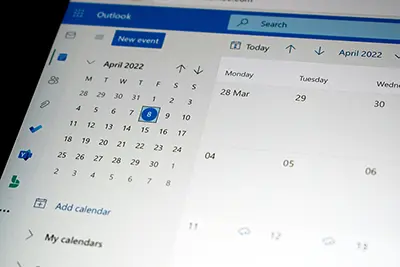When Life Interrupts Work Plans: Mastering Emergency Annual Leave Requests
Let's be honest – if there's one thing that can make even the most seasoned HR professional break out in a cold sweat, it's receiving a frantic call at 7am from an employee whose childminder has just cancelled, or whose elderly parent has been rushed to hospital. Emergency leave requests have a knack for arriving at precisely the worst possible moment, usually when you're already juggling three urgent deadlines and the MD is breathing down your neck about the quarterly figures.
But here's the thing: emergencies are part of life, and how we handle them says everything about our company culture. Get it right, and you'll build loyalty that money can't buy. Get it wrong, and you'll find yourself explaining to an employment tribunal why compassion seemed to be in short supply when your employee needed it most.
The challenge isn't whether to accommodate emergency leave requests – it's how to do it fairly, consistently, and without causing operational chaos. After years of fielding these requests, I've learned that the best approach combines clear policies with genuine human understanding, sprinkled with a healthy dose of pragmatism.
What Actually Counts as an Emergency?
Before we dive into the how, let's tackle the what. Not all urgent requests are genuine emergencies, and drawing these lines early saves everyone a headache later. True emergencies typically involve situations where immediate action is required and delay simply isn't an option.
Family medical emergencies top the list – when someone's child is rushed to A&E or an elderly relative suffers a stroke, no reasonable person expects them to worry about following standard leave procedures. Similarly, sudden childcare breakdowns, particularly for single parents or families without backup support, often require immediate attention.
Bereavement obviously falls into this category, though it's worth noting that grief affects everyone differently. Some people need immediate time off, whilst others prefer to stay busy and might request leave for the funeral later in the week.
Then there are those grey areas that test our judgement: the burst pipe flooding someone's home, the court summons that arrives with short notice, or the university interview that could change someone's career trajectory. These situations require a more nuanced approach – they're clearly important to the individual, but might not meet everyone's definition of an emergency.
The key is having clear criteria that help managers make consistent decisions, whilst still allowing room for common sense and compassion.
The 24-Hour Rule: A Practical Lifeline
One framework that works particularly well is what I call the '24-hour rule'. It's beautifully simple: in genuine emergencies, employees can take immediate leave but must make formal contact within 24 hours to discuss the situation and next steps.
This approach acknowledges that when someone's rushing to the hospital or dealing with a family crisis, filling out leave forms isn't exactly their top priority. But it also ensures that the business isn't left completely in the dark about when someone might return or what support they might need.
During that initial 24-hour period, focus on the essentials: is the employee safe, do they need any immediate support, and what's the likely timeframe for their absence? Everything else can wait until emotions have settled and everyone can think more clearly.
Flexibility: Your Secret Weapon
Here's where many organisations go wrong – they treat all emergency leave requests the same way, regardless of circumstances. A more sophisticated approach offers multiple options that can be tailored to individual situations.
Sometimes, emergency annual leave from existing entitlement is the perfect solution. Other times, unpaid leave might be more appropriate, particularly for extended situations that could drain someone's holiday allowance and leave them with nothing for planned breaks.
Don't overlook creative solutions like time off in lieu arrangements – perhaps allowing someone to work extra hours before or after their emergency to offset the absence. For roles that allow it, temporary remote working can be a godsend, enabling someone to provide care whilst still contributing to urgent projects.
The goal isn't to make things complicated, but to have enough options that you can find something that works for both the employee and the business. Modern leave management systems can help track these various arrangements and ensure nothing falls through the cracks.
Managing the Response: More Art Than Science
When that emergency call comes in, your response sets the tone for everything that follows. Start by listening – really listening – without immediately jumping to policy concerns or business impact. People in crisis can usually tell whether you're genuinely concerned about their wellbeing or just going through the motions.
Ask open questions to understand the situation: How long might they need? Is there anything the company can do to help? Who in their team should be informed, and what urgent matters need immediate attention?
Once you've gathered the essential information, focus on solutions rather than problems. Yes, their absence might create challenges, but that's a management issue to solve, not a burden to place on someone who's already dealing with enough stress.
Document everything, but do it sensitively. You need records for consistency and potential future reference, but avoid turning someone's personal crisis into a bureaucratic exercise. A simple note about the nature of the emergency, the leave arrangement agreed, and any follow-up required is usually sufficient.
Building Your Safety Net
The best time to prepare for emergency leave is when everyone's calm and present. Cross-training team members, maintaining up-to-date process documents, and establishing relationships with reliable temporary staff can transform a potential crisis into a manageable inconvenience.
Consider creating emergency contact protocols that ensure someone senior is always available to make decisions, even outside normal working hours. There's nothing worse than a genuine emergency being delayed because nobody with authority can be reached.
Walking the Tightrope: Compassion vs. Consistency
One of the trickiest aspects of managing emergency leave is maintaining fairness whilst dealing with very different situations. Research from the CIPD consistently shows that employees value fair treatment more than generous policies, which means consistency in decision-making is crucial.
That said, mechanical application of rules rarely produces good outcomes. The key is having clear principles rather than rigid procedures. What matters is that similar situations are treated similarly, not that every request follows exactly the same process.
Keep records of decisions and the reasoning behind them. This creates a reference point for future situations and helps ensure that personal relationships or office politics don't influence outcomes.
The Elephant in the Room: Preventing Abuse
Let's address the concern that keeps many managers awake at night: what if people start taking advantage of flexible emergency leave policies? It's a valid worry, but one that's often overblown.
In practice, most people are remarkably honest about genuine emergencies. The bigger risk is creating such a restrictive policy that it catches legitimate cases in its net whilst doing little to deter the genuinely dishonest.
Focus on patterns rather than individual instances. Someone who seems to have an emergency every few weeks probably needs a different kind of conversation. But don't let the fear of occasional abuse prevent you from supporting the vast majority of employees who'll only need emergency leave rarely and genuinely.
Communication: The Glue That Holds Everything Together
Clear communication channels are essential for managing emergency leave effectively. Ensure employees know how to reach someone with authority outside normal hours – whether that's through a dedicated mobile number, messaging system, or out-of-hours answering service.
Consider setting up team messaging groups for urgent notifications, but be mindful of boundaries. Nobody wants to be woken at 3am unless it's genuinely necessary.
During extended emergency leave, maintain appropriate contact with the absent employee. A weekly check-in shows you care about their wellbeing and helps you plan for their return, but don't become intrusive or demanding.
Making It Work in Practice
Emergency leave requests don't have to be the HR nightmare many organisations fear them to be. With thoughtful policies, empathetic management, and the right tools to support decision-making, they become just another aspect of supporting your workforce through life's inevitable ups and downs.
The organisations that handle emergency leave well aren't necessarily those with the most generous policies – they're the ones that combine clear expectations with genuine flexibility, backed by managers who understand that sometimes, life simply has to come first.
Remember, your response to someone's emergency leave request often becomes the story they tell about your company for years to come. Make sure it's a story you'd be proud to hear repeated.





